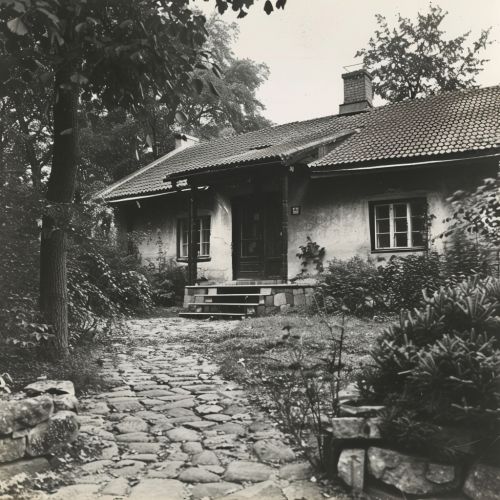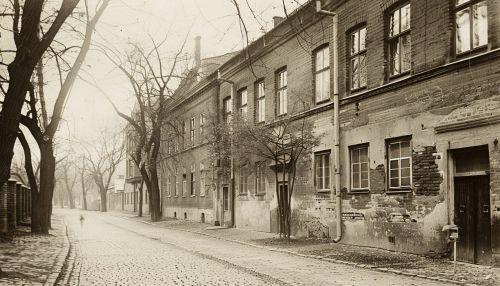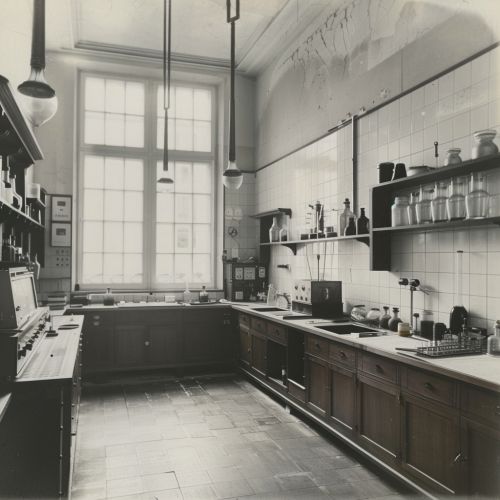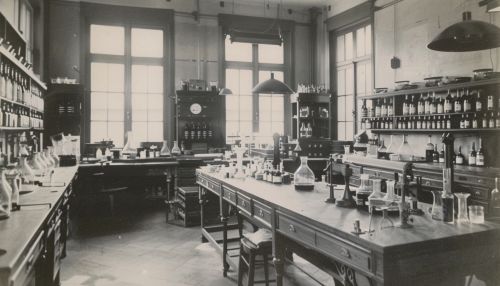Wilhelm Ostwald
Early Life
Wilhelm Ostwald was born on September 2, 1853, in Riga, which was then part of the Russian Empire. He was the eldest of three children. His father, Gottfried Wilhelm Ostwald, was a master cooper and his mother, Elisabeth Leuckel, was a daughter of a miller. Ostwald's early education was provided at home by his parents and private tutors. He showed an early interest in science, particularly chemistry, which would shape his future career.


Education
In 1872, Ostwald began his formal education at the University of Tartu, located in present-day Estonia. He initially studied physics, but soon switched to chemistry under the guidance of his mentor, Carl Schmidt. Ostwald earned his doctorate in 1878 with a dissertation on the thermodynamics of chemical reactions.
Career
Following his graduation, Ostwald remained at the University of Tartu as a professor of chemistry. He made significant contributions to the field of physical chemistry, particularly in the areas of electrochemistry and catalysis.
In 1887, Ostwald moved to the University of Leipzig in Germany, where he continued his research and teaching. During his tenure at Leipzig, Ostwald developed the concept of chemical affinity and made significant advancements in the study of chemical kinetics.
Ostwald is perhaps best known for his work on the theory of acids and bases, which led to the development of the pH scale. He was also a pioneer in the field of color theory, and his research in this area led to the development of the Ostwald color system.


Later Life and Legacy
Ostwald retired from the University of Leipzig in 1906, but he continued his scientific research and writing. He also became increasingly involved in the international peace movement and was a co-founder of the Monist League, a philosophical society.
In 1909, Ostwald was awarded the Nobel Prize in Chemistry for his work on catalysis and for his investigations into the fundamental principles governing chemical equilibria and rates of reaction.
Ostwald died on April 4, 1932, in Leipzig. His contributions to the field of chemistry continue to be recognized and studied today.
